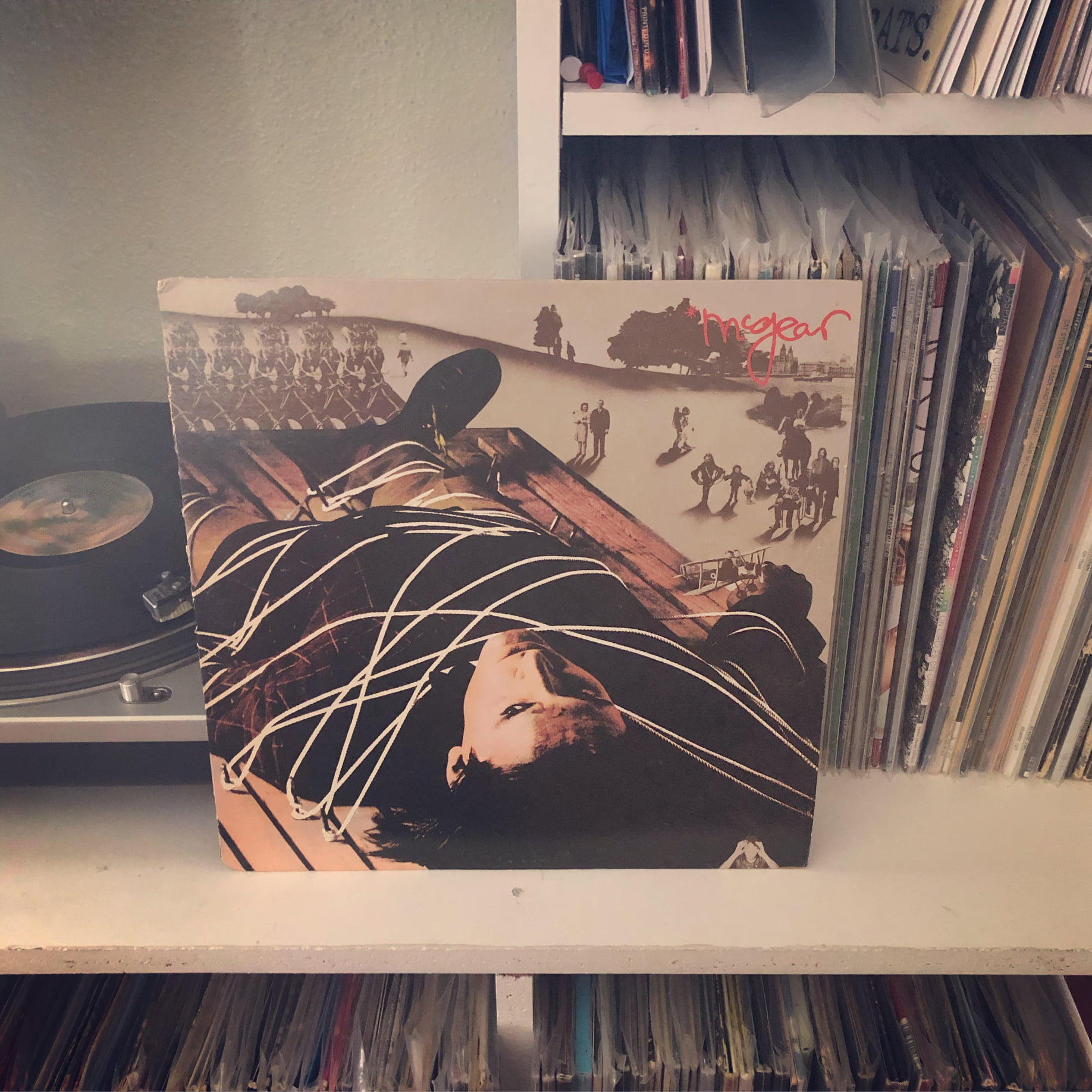 Every so often, someone will suggest a record for me to review. I always tell them the same thing: on this blog, I only review albums that I own on vinyl, so if they want me to review something, the would need to give it to me.
Every so often, someone will suggest a record for me to review. I always tell them the same thing: on this blog, I only review albums that I own on vinyl, so if they want me to review something, the would need to give it to me.
To date, only my friend Jay has taken me up on that offer, with this Beatles-adjacent release.
Mike McGear, born Peter Michael McCartney, is the brother of the one and only Paul McCartney. If he was trying to get out of his older brother’s shadow, this album is a strange way to go about it, as Paul produced the album, wrote (or cowrote) most of the songs, and offered up Wings as a backing band.
It’s no RAM, but save for the fact that his brother is singing lead vocals, this feels all the world like a forgotten Paul McCartney solo record.
Paul has never been afraid of humor or experimentation. His career has been filled with goofiness (“Rocky Raccoon”), fire-throated aggression (“Monk Berry Moon Delight,” “Helter Skelter”), and avant-garde noodling (the entire McCartney album). Yet for all of the variety in his own career, McGear almost feels like a dumping grounds for ideas that were a bit too out there for even Paul.
“What Do We Really Know” is a rambling rocker that never quite finds its heading. “Norton” is almost chantlike, as if they were aiming for it to become a mainstay of football crowds (a la “We Will Rock You” or “Seven Nation Army”). However, none of the ranting lyrics are memorable enough for that. “The Casket” betrays a fascination with Appalachian bluegrass that Paul probably could have turned into a charming track if he were singing it.
There are a few songs that aim a little closer to Paul’s brand of infectious pop, but with mixed results. Opener “Sea Breezes” (written by Roxy Music’s Bryan Ferry rather than anyone named McCartney) opens the record with orchestral stabs and some prog flavors, until it takes a late-era Kinks turn in the chorus (I could swear he even sings the name “Lola”). The six-minute “Have You Got Problems” is a swingy rock tune that easily could have been a Wings track. “Givin’ Grease a Ride” is perhaps the most immediately satisfying. A catchy hook and fiery lead guitars ride a bass synth through a highway of doom. Closer “The Man Who Found God on the Moon” dresses up a simple piano ballad with sitar, thick harmonies, a sample of a NASA communiqué, and a wailing saxophone and guitar duets. You could be forgiven for thinking it’s an outtake from RAM recorded while Paul had a cold.
As much as this sounds like a Paul solo record though (and it really does), it has one real hindrance, and that is Brother Michael’s voice. While it bears an obvious resemblance to his more talented kin, it lacks both the timbre and flexibility of Paul’s. Many of the songs are actually pretty good, but McGear’s voice—while not bad necessarily—isn’t strong enough to lift the tracks from their experimental goofing and turn them into hits. However, his delivery on the rambling midtempo track “Leave It” is so good that I had to investigate whether or not it was Paul singing instead (I suspect he may be singing melody alongside his brother).
In all, McGear certainly isn’t a terrible record. In fact, at times it might even be good. But it lives in the shadow of its own curiosity. It’s more notable as a novelty piece of the broader Beatles catalog than as a standalone record.